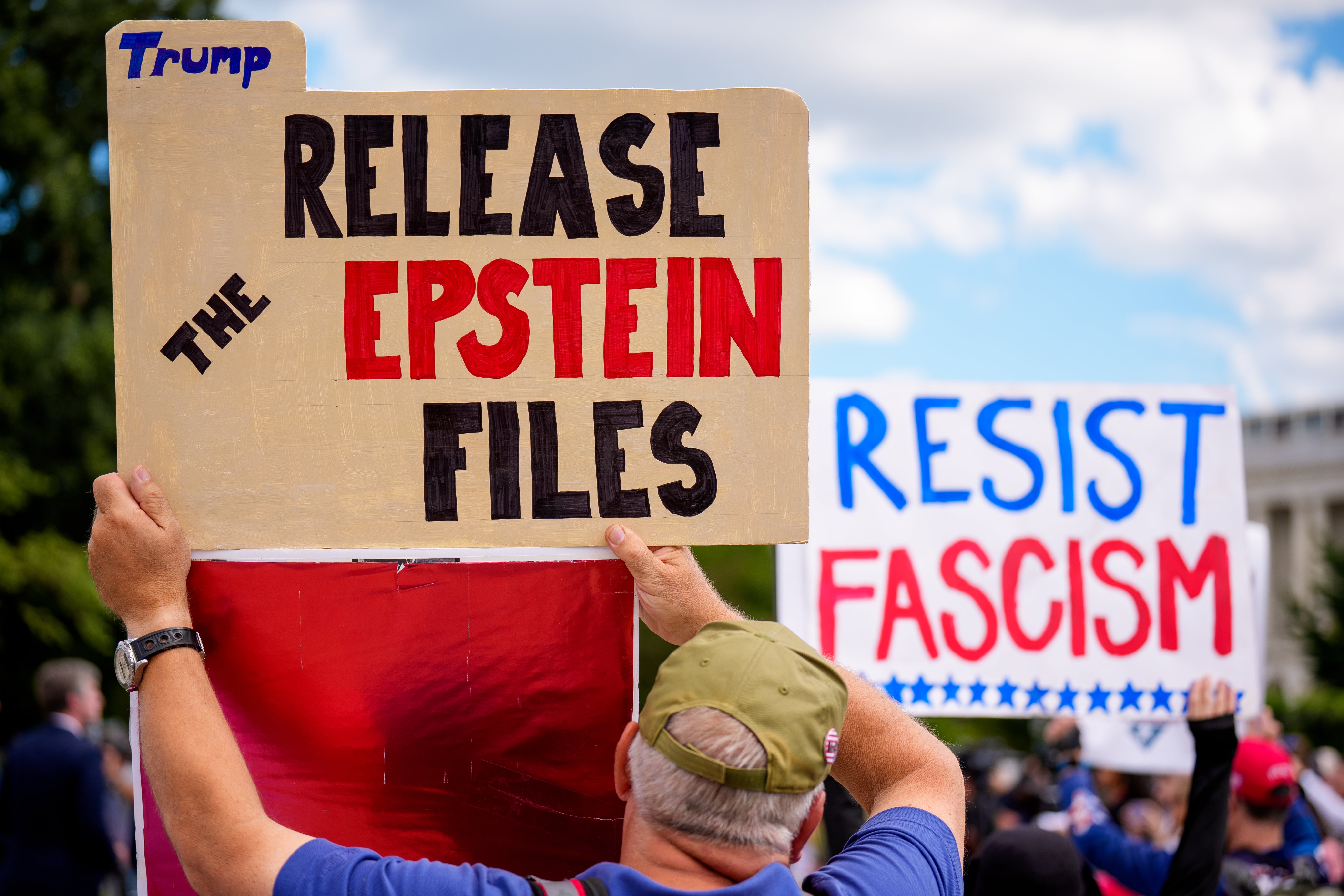The House Committee on Oversight and Government Reform has released more than 30,000 pages of the so-called “Epstein files” that it received from the U.S. Department of Justice.
The files, revolving around child sex abuser and New York financier Jeffrey Epstein, were released to Congress in response to a subpoena from the committee’s chairman, Representative James Comer, that was issued on August 5.
According to the committee, more documents may be coming from the Justice Department, noting that it has “indicated it will continue producing those records while ensuring the redaction of victim identities and any child sexual abuse material.”
The documents include hundreds of image files from years-old court records related to Epstein and his longtime girlfriend and confidant Ghislaine Maxwell. In addition to the court records, the released documents also contain body camera footage from police searches at Epstein’s properties and interview between law enforcement and Epstein’s victims.
According to Democrats who have seen the files, much of what has been released is already known to the public. A committee source told Politico that only three percent of the release is new information.

Democrats on the committee noted even before the records were released that little of the information was new.
“Only 3 percent of the documents given to the Oversight Committee are new. The rest are already in the public domain. Less than 1 percent of files have been released. DOJ is stonewalling,” Representative Ro Khanna said in an August 23 statement.
Congressman Robert Garcia said that the files did not contain anything resembling a “client list” — a rumored list of Epstein’s clients that may or may not exist — or “anything that improves transparency or justice for victims.”
Congressman Thomas Massie said he was not satisfied with the DOJ’s release.
“My staff has done a quick look at it and it looks like a bunch of redacted documents and nothing new, so it’s not going to suffice,” he said.
They were joined by a chorus of other Congressional leaders voicing their disapproval with the release.
Congressman Raja Krishnamoorth noted that he and other Congressional leaders had met with Epstein’s victims and said that their “message was clear.”
“We need full transparency, we need full accountability, and we need to ensure nothing like this ever happens again,” he wrote in a post on X.
Congresswoman Melanie Stansbury said in a post on X that “survivors of sexual violence have been silenced by systems built to protect the powerful—including in this Chamber,” and said some of the victims that spoke to Congress were telling their stories “for the first time ever.”
“What they revealed is not only the trauma of hundreds (maybe thousands) of young women, but a cover-up of epic proportions involving the wealthy, the well-connected, and even our own government—all the way to the top. Let me be clear: we will not stop,” she wrote.
“We will follow every thread, every document, and every bank record until there is justice. To every survivor out there: We see you. We believe you. And we are fighting for you.”
Congresswoman Summer Lee echoed similar sentiments, saying it “is clear the government has failed [the Epstein] survivors.”
“Now it’s our responsibility to deliver justice and the peace and healing they deserve,” she said on X.
Even Republican Congresswoman Marjorie Taylor Greene said she was backing Massie’s discharge petition to demand full transparency from the Department of Justice.
“I’m committed to doing everything possible for the victims of Jeffrey Epstein. Including exposing the cabal of rich and powerful elites that enabled this,” she said. “I’m proud to be signing @RepThomasMassie‘s discharge petition.”
The release comes on the heels of Congressional members, including some Republicans, demanding greater disclosure regarding Epstein’s crimes and those involved with him.
Republican Speaker Mike Johnson is currently trying to thwart efforts from those criticizing the alleged lack of transparency by the Trump administration to force a vote on a bill requiring the Justice Department to release all of the information in the so-called Epstein files, with the exception of victims’ personal information.








